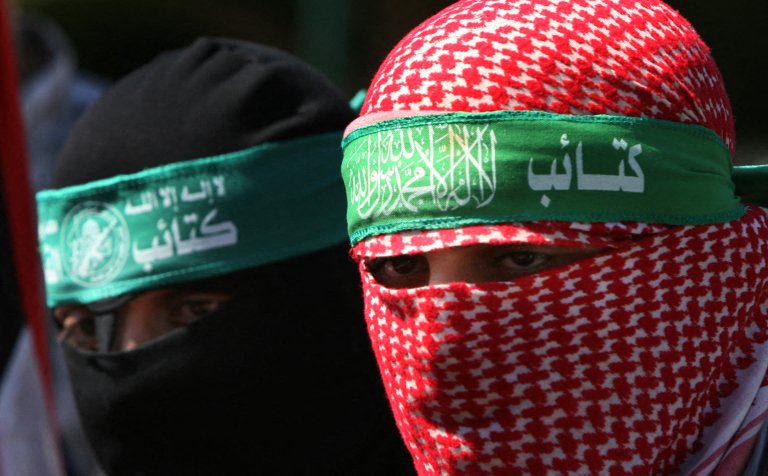
403
Sorry!!
Error! We're sorry, but the page you were looking for doesn't exist.
Palestinian resistance factions inflict significant losses on Israeli forces in several locations
(MENAFN) Palestinian resistance factions inflicted significant losses on Israeli forces in several locations, coinciding with reports of progress toward a ceasefire agreement. The Israeli army confirmed the death of a company commander and a soldier in Rafah, while Zionist media reported a “difficult security incident” in Jabalia, located in the northern Gaza Strip. The al-Qassam Brigades, the military wing of Hamas, claimed responsibility for an attack on three soldiers near Jabalya camp, as well as the detonation of a booby-trapped house that targeted an occupation force of 11 soldiers, resulting in casualties.
Meanwhile, negotiations on a prisoner exchange and ceasefire have been progressing, with Hamas indicating that an agreement could be reached through positive discussions mediated by Egypt and Qatar in Cairo and Doha. However, optimism remains cautious as there are concerns that the occupation may impose new conditions to block the resolution. Hamas emphasized that "serious and positive talks" are taking place in Doha, and an agreement is possible if the occupation refrains from adding new demands. It is reported that most major issues have been resolved, bringing the ceasefire agreement closer to finalization.
Israeli media reports suggest that the ongoing ceasefire talks, mediated by Egypt and Qatar, have reached an advanced stage, focusing on developing mechanisms for implementation, which will be monitored by international organizations. The first phase of the agreement would involve a freeze in fighting and the withdrawal of Israeli forces from Gaza's city centers, although Israel will retain control over key strategic sites in "Netzarim" and the "Philadelphia" axis. Additionally, women and children would be allowed to return to the northern Gaza Strip, with a gradual return of men to follow, along with humanitarian aid entering the region. In return, Hamas would release around 30 Israeli prisoners, both dead and alive, in exchange for Palestinian prisoners, including those with high or life sentences. A partial withdrawal of Israeli forces from the Philadelphia axis would also take place, with plans to transfer control of the Rafah crossing to the Palestinian Authority, under Egyptian supervision.
The second phase would involve the release of more prisoners and the complete withdrawal of Israeli military forces from Gaza, while maintaining a presence on Gaza’s eastern and northern borders. The third phase would mark the end of the conflict and the beginning of Gaza's reconstruction, with the blockade lifted, crossings fully reopened, and a new management system for the region, involving coordination with the Palestinian Authority, Egypt, and the European Union.
Meanwhile, negotiations on a prisoner exchange and ceasefire have been progressing, with Hamas indicating that an agreement could be reached through positive discussions mediated by Egypt and Qatar in Cairo and Doha. However, optimism remains cautious as there are concerns that the occupation may impose new conditions to block the resolution. Hamas emphasized that "serious and positive talks" are taking place in Doha, and an agreement is possible if the occupation refrains from adding new demands. It is reported that most major issues have been resolved, bringing the ceasefire agreement closer to finalization.
Israeli media reports suggest that the ongoing ceasefire talks, mediated by Egypt and Qatar, have reached an advanced stage, focusing on developing mechanisms for implementation, which will be monitored by international organizations. The first phase of the agreement would involve a freeze in fighting and the withdrawal of Israeli forces from Gaza's city centers, although Israel will retain control over key strategic sites in "Netzarim" and the "Philadelphia" axis. Additionally, women and children would be allowed to return to the northern Gaza Strip, with a gradual return of men to follow, along with humanitarian aid entering the region. In return, Hamas would release around 30 Israeli prisoners, both dead and alive, in exchange for Palestinian prisoners, including those with high or life sentences. A partial withdrawal of Israeli forces from the Philadelphia axis would also take place, with plans to transfer control of the Rafah crossing to the Palestinian Authority, under Egyptian supervision.
The second phase would involve the release of more prisoners and the complete withdrawal of Israeli military forces from Gaza, while maintaining a presence on Gaza’s eastern and northern borders. The third phase would mark the end of the conflict and the beginning of Gaza's reconstruction, with the blockade lifted, crossings fully reopened, and a new management system for the region, involving coordination with the Palestinian Authority, Egypt, and the European Union.

Legal Disclaimer:
MENAFN provides the
information “as is” without warranty of any kind. We do not accept
any responsibility or liability for the accuracy, content, images,
videos, licenses, completeness, legality, or reliability of the information
contained in this article. If you have any complaints or copyright
issues related to this article, kindly contact the provider above.
Most popular stories
Market Research
- Thinkmarkets Adds Synthetic Indices To Its Product Offering
- Ethereum Startup Agoralend Opens Fresh Fundraise After Oversubscribed $300,000 Round.
- KOR Closes Series B Funding To Accelerate Global Growth
- Wise Wolves Corporation Launches Unified Brand To Power The Next Era Of Cross-Border Finance
- Lombard And Story Partner To Revolutionize Creator Economy Via Bitcoin-Backed Infrastructure
- FBS AI Assistant Helps Traders Skip Market Noise And Focus On Strategy



















Comments
No comment